
Department for External Church Relations
The site uses cookies to help show you the most up-to-date information. By continuing to use the site, you consent to the use of your Metadata and cookies. Cookie policy
Metropolitan Hilarion: God does not want to condemn, but to save us
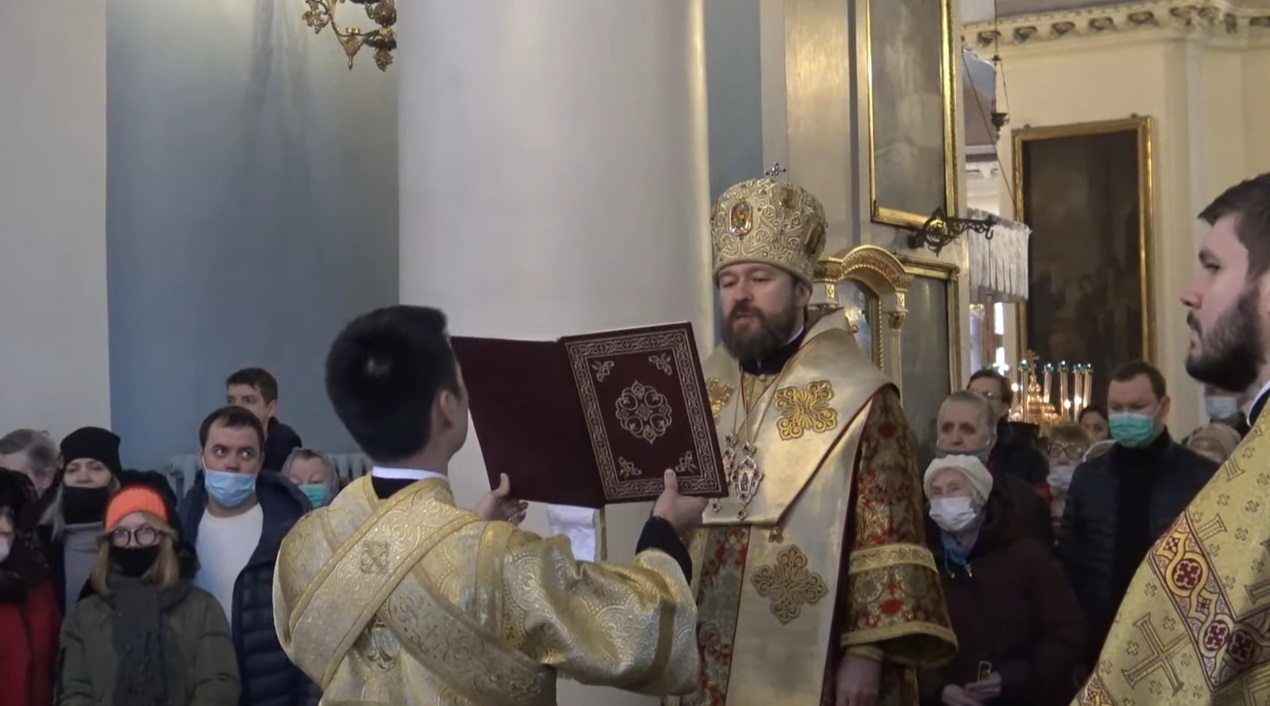
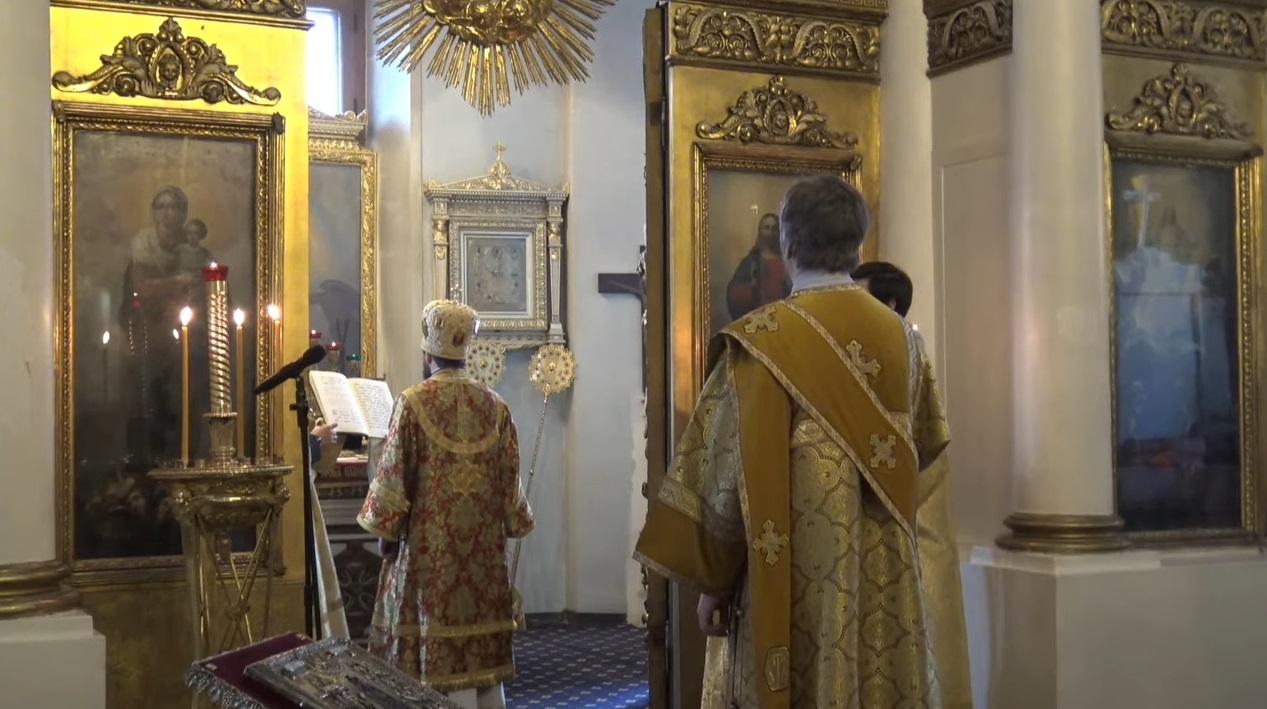
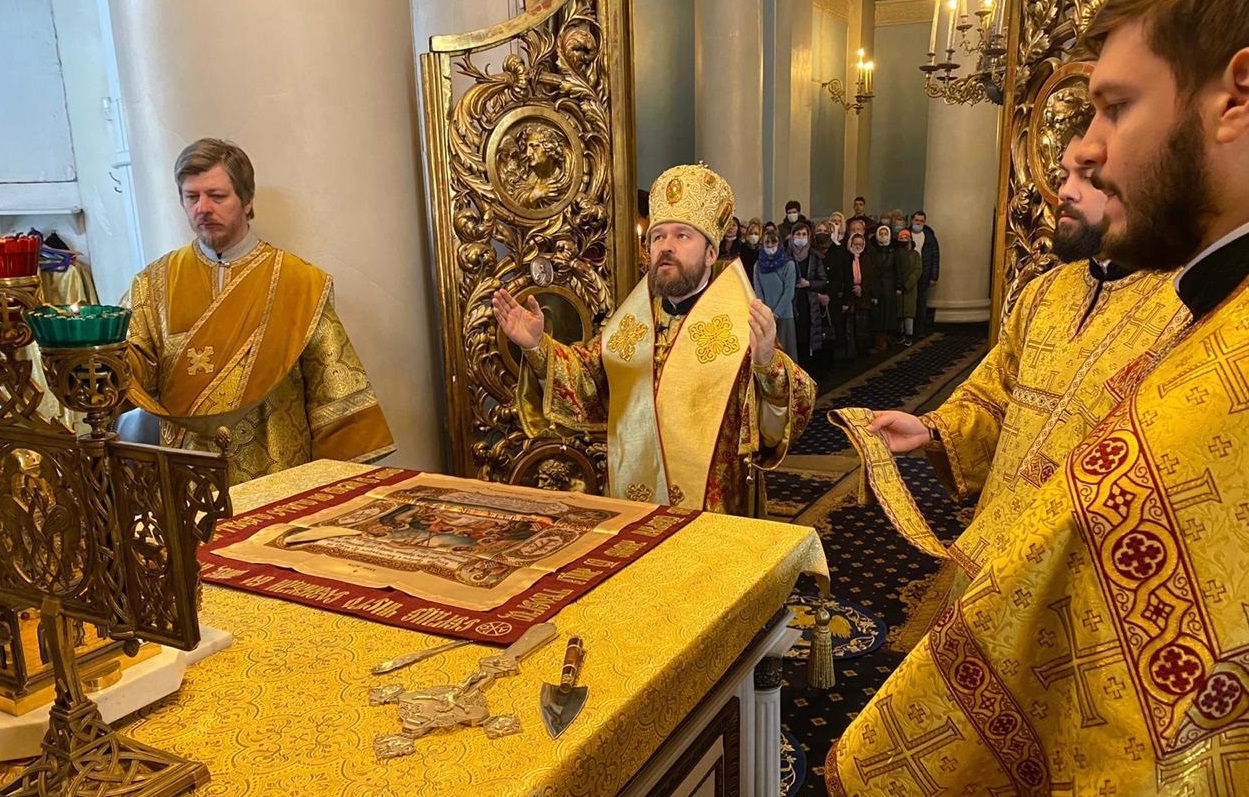
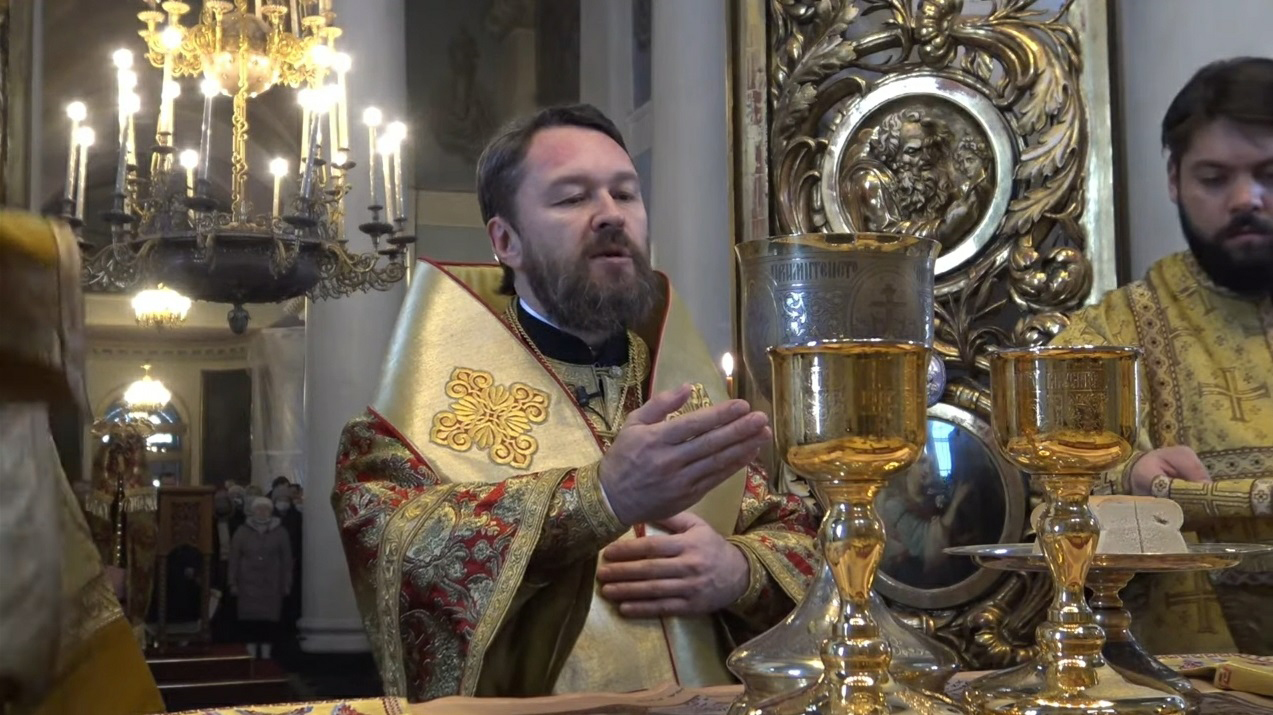
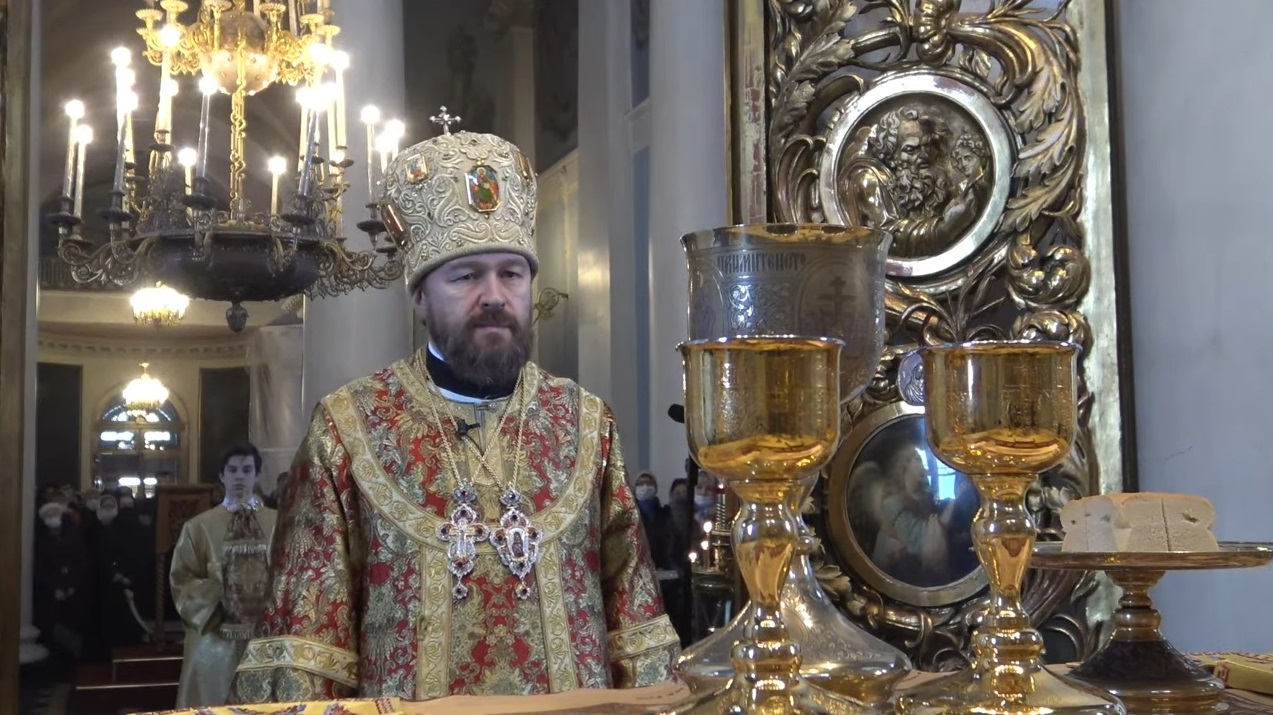
On the 7th of March 2021, on the Cheesefare week on the Last Judgement, Metropolitan Hilarion of Volokolamsk, chairman of the Moscow Patriarchate's Department for External Church Relations celebrated the Divine Liturgy of St. John Chrysostom at the Moscow church of “Joy to All the Afflicted” icon of the Mother of God on Bolshaya Ordynka street. Clergymen of the church assisted the archpastor.
During the Litany of Fervent Supplication, petitions were offered up for deliverance of the coronavirus infection.
After the Litany, Metropolitan Hilarion lifted up a prayer recited at the time of the spread of baneful pestilence.
Then the Archpastor addressed those present with a sermon, saying:
“In the name of the Father and the Son and the Holy Spirit!
What does the Last Judgment mean to us and why, a week before the beginning of Great Lent, does the Church remember the Last Judgment?
There is such a thing as justice. In our earthly reality, this means that if a person has committed a crime, he must be punished accordingly. The more serious the crime, the more serious the punishment. The entire Criminal Code, the entire system of criminal law is built on this principle.
Of course, in the earthly life, justice is not always done. Sometimes the crime remains unsolved, and the person who should be in prison remains free. Or, an innocent person is accused of a crime, and he is serving a prison term, while the real criminal is not locked up.
When we talk about the Divine justice, then, first of all, we are talking about human sins. Sins are crimes against the righteousness of God, which alienate us from the Lord and deprive us of the Kingdom of Heaven.
Each of us has committed sins countless times. Sins are very different - grave and less grave, some of them seem to us regular and ordinary. There are sins that we commit in front of others, and there are, on the contrary, those sins that people do not see, but God sees.
One can sin not only by action, but also by thought. And no sin can hide from the Divine gaze: not only grave, but also the most imperceptible, inner sin, sin in thought. But if we think of God only as a Judge who watches over us and counts our sins and waits to condemn us at the Last Judgment, then this is an erroneous idea. God does not want to condemn, but to save us. For the sake of our salvation, He came to earth, became incarnate, became a man, took our sins upon Himself and suffered diseases, suffered on the cross and died - and all in order to save us, and not condemn us.
Therefore, we should not imagine the Last Judgment as a kind of judgment seat that the Lord prepares for us. We must think about how we ourselves will appear before God after we pass into another world. With what will we come to Him? What are we going to tell Him? How can we be accountable for our good deeds?
In today's Gospel reading, which we have heard during the divine service, the Lord reminds us by what criteria people will be judged at the Last Judgment. These criteria are very simple: feed the hungry, give water to the thirsty, bring the homeless into your house, clothe the one who is stripped of clothes, visit the sick or prisoners. The people who have fulfilled this, the Lord will put onto His right hand and they will be rewarded with the Kingdom of Heaven. And on the left hand of the Lord are all those who have not fed the hungry, have not given water to the thirsty, have not visited the sick or those who are in prison, have not clothed the naked, have not brought the homeless into their home. In other words, on the left side there will be people who remained indifferent to their neighbours.
Both, as the Lord tells us, will be surprised: some will be surprised that God took them for deeds of love and mercy towards Him, while others - that the Lord rejected them, and they found themselves in the place of the condemned. Both those and others will ask: “Lord! When did we see You hungry, or thirsty, or as a stranger, or naked, or sick, or in prison? " And the Lord will say: "Everything that you did (or did not do) to one of the least of my brothers, you did to me."
In ancient times, especially during the earthly life of the Lord Jesus Christ, many people were honoured with their bodily eyes to see the Incarnate God. In subsequent times, some saints - the Apostle Paul, and after him others, to whom the Lord appeared and instructed on the path of a righteous life - were honored to see the Lord.
Often we ask ourselves: “Why doesn't the Lord appear to us? Why don't we see Him? " But the Lord answers us: “You can see Me in each of those people who need your help and support. If a person comes to you and asks for something, it means that I come to you. If you have shown mercy to the afflicted, it means that you have shown it to Me, and if you rejected him, then you have rejected Me”.
The Holy Church reminds us of this today. And the Last Judgment is menacing not because someone will count our sins, but because we secure our future in eternal life with our own lives, with our good deeds or their absence. And it can be both eternal bliss and eternal torment.
The Holy Church reminds us of the Last Judgment a week before Great Lent so that we set ourselves up on the path of repentance. Because in addition to the commandment about love for neighbours, which is given to each of us, we are also given a special way of interaction and relationship with God - what is called repentance in the language of the Church. Repentance is not only repentance. Many who committed a crime repented, but this did not save them from the punishment they deserved. And we have been given an image of repentance, that is, the opportunity to change our life - not only to designate our sins, confess them, regret them and live on as we lived before, but to embark on the path of correcting the whole way of life, on the path of healing our mind and hearts».
DECR Communication service
Patriarch
Sermons
21.09.2025
17.09.2025
28.10.2025
24.01.2021
06.11.2020